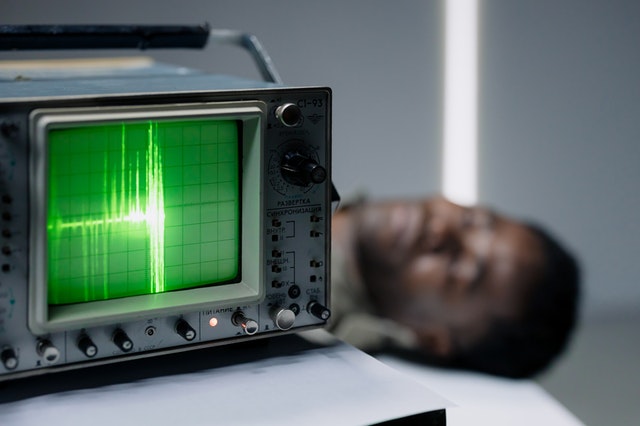What is a CNA skills test?
A skills test is an indispensable part of the CNA exam. Its requirement is that candidates can perform good nursing responsibilities in front of an evaluator. You’ll be asked to demonstrate these duties in approximately 30 minutes.
You are probably already aware of all you need to do for the purpose of becoming a Certified Nursing Assistant (CNA). Here’s a quick brief:
- Complete the training course at a state-approved school/educational institution.
- Pass a written examination that contains approximately 60–100 questions. The number of questions will depend on the rule/decision of your living state.
- Demonstrate well all your practiced nursing skills in front of the evaluator.
Almost all pre-CNAs are worried about the Skills part of the CNA examination. Apart from the handwashing skill — the skill which every state needs include — the CNA test takers are unable to know exactly which skills will be required by the CNA evaluator. There are approximately 30 basic procedures that you can be required to test on.

CNA essential skills
This is the list of skills that you can be required to perform and a brief description of each skill:
- Handwashing—Most CNA exams will contain handwashing in their skills examination.
- Donning and Doffing the Gown and Gloves—Especially in case you have to work with transmissible patients, donning and doffing protective personal equipment (which is often called PPE), such as gowns and gloves, is absolutely necessary.
- Positioning in Fowler’s Position—This is a task requiring you to adjust the client’s bed to be in a semi-sitting position. This task is often required in case a patient is short of breath and needs immediate treatment.
- Positioning in Lateral Position—Moving your client into this side-lying position in some scenarios.
- Transferring from Bed to Chair Using a Gait Belt—For clients who get problems with ambulating, using an assistive device such as Gait Belt is extremely important.
- Helping the patients in Walking Using a Gait Belt—Gait belts can also do wonders in supporting and assisting a patient with walking.
- Making an Occupied Bed—For bedridden clients, changing their sheets and making their bed clean while they are still in it can be difficult for every CNA. So this task is really important so that CNAs can be given the opportunity to practice before joining a real job.
- Passive Range on the Upper Body of Patients— For patients who get problems with moving their upper extremities, several passive exercises for body parts such as shoulders, fingers, elbows,.. may be important.
- Passive Range on the Lower Body of Patients —For patients who are unable to ambulate, several moving exercises of some body parts such as hips, ankles, knees, and toes can do wonders in avoiding the risks of suffering numerous complications.
- Brushing Dentures—Patients with dentures can require the assistance of CNAs
- Mouth Care—For unconscious patients, mouth care is really important so that it can prevent them from being suffered by infections.
- Upper Body Partial Bed Bath—For patients who get problems with mobility or patients who are unconscious, upper body bed baths can assist them to maintain hygiene.
- Lower Body Partial Bed Bath—Several bedridden patients may require the CNA to do their Bed Bath.
- Providing a Back Rub/Massage—Obviously, Back rubs and massages are an effective complementary or can be considered alternative therapy for pain relief.
- Female Perineal Care—Besides bathing, female perineal care can also be considered indispensable for personal hygiene that can help patients avoid infections.
- Shaving—Although it seems like a cosmetic task and seems not really important, it can be very beneficial in helping a patient look better.
- Fingernail Trimming—In fact, fingernails can harbor bacteria, therefore, they should be trimmed carefully to avoid infections. But remember to do it carefully to ensure that the skin of the patient is not adversely damaged.
- Assisting Dressing with an Immobile Arm—For patients who have immobile arms, helping them with getting dressed is absolutely important.
- Serving and Feeding a Paralyzed Patient—For paralyzed patients, it is not only a physical need but also a special precaution to avoid complications, aspiration as an example.
- Assisting with Bedpans—For patients who can’t get out of bed, a bedpan will be important for voiding.
- Measuring Height—An upright scale can be used for the purpose of accurately measuring a patient’s height.
- Measuring Weight—CNAs can be required to measure a client’s weight.
- Recording Radial Pulse—Because it can be considered the most important vital sign, CNAs can be required to manually measure the client’s radial pulse.
- Recording Respirations—To be more specific, measuring a client’s respirations can be done without telling the client that is what you are assessing.
- Recording Blood Pressure—While the majority of individuals depend on automatic machines when taking the blood pressure of the patients, the CNAs can be required to know exactly how to physically take it.
>>> Read more: 25 CNA Skills You Need To Know
Steps to pass the CNA skills test
Step 1: Become familiar with the required skills
There’s no way around it: You have got to know the aptitudes superior to you know your title. You as of now know these skills from your preparation. They’re the same abilities you’ll utilize every day as a CNA. Each aptitude could be an arrangement of steps that you just must know and take after the assessment.
Step 2: Use effective methods
There are numerous reliable information sources that you can access from the Internet. Let’s use these types of resources to help you study:
An effective and old-fashioned method to practice for the CNA exam is to make your own flashcards. Let’s use big index cards. It’s possible for you to write or paste these steps for each skill required on one side and the exact name of each skill on the other side. Then you can shuffle all of them and review them again before moving to the next task. This will do wonders in remembering what you need to do in each skill required.
Gather some of your classmates or teammates for a study team. Practice performing and demonstrating the required skills in the lists above with each other until you are able to do them professionally without any hesitation.
Maybe you care: The Most Essential CNA Tips For Passing This Exam
Step 3: Understand your state
In spite of the fact that the states all have comparable necessities for the aptitudes exam, their testing strategies may change. In the event that your preparing program didn’t grant you any specifics, discover your state here. You’ll discover valuable data on how numerous abilities will be tried and how much time you may have. You’ll too discover whether you’ll have an on-screen character (another individual taking the test) or a model for your showings and whether you’ll be required to “act” as a persistent for another CNA candidate’s abilities test.
Every state includes handwashing as a skill. A few will make it the primary expertise; others will incorporate it amid your other performance. Handwashing is the essential method for infection control. Obviously, emphatically don’t mess this up; it’s a moment that falls flat in case you are doing.
Besides handwashing, almost all states have the habit of requiring one of these two skills:
- Recording a measurement: You should be ready to perform well the skill of recording a patient’s blood pressure, radial pulse, or respiration. Also, remember to measure the urine output as a preferred skill.
- Indirect care: This skill can require the pre-CNA to communicate effectively with a patient and pay attention to his comfort, needs, and safety. The scenario might combine knowledge about patients’ Rights. Infection control is an important part of this skill, too.
Each state has the right to choose an approved provider to administer the CNA skill examination. They, obviously, are professional organizations/institutions so that they can have enough CNA ability to provide independent and unbiased exams to the CNA candidates.
1 week before the exam day
- Rehearse carefully
Depending on the type of exam you choose, you need to have a deep understanding of the factors surrounding it. To be more specific, if you are taking the CNA test through a third party or at a school or educational institution of CNA, you need to know exactly the distance between where you live and the location where you take the test. This will help you minimize unnecessary risks such as traffic jams or astray… On the contrary, if you choose to take the online exam, you also need to prepare for the network connection, try the exam websites, and set up tools carefully. No matter where you take the exam and whatever format you take, it’s important to prepare it well.
-
Go to bed early to ensure emotional health
Go to bed early and prepare for the official test day. By this method, you can maintain good mental and emotional health before the CNA test. Don’t worry or become stressed – remember – worrying doesn’t improve your test results.
- The big day comes
If you have already prepared carefully, let’s get ready for the challenge. If your skills exam day is on a quite different date from the written exam, be sure to arrive about 15 to 20 minutes early. Before taking the official CNA test or before coming to the room, do a small warm-up to be ready. Despite not taking any materials to the testing room, remember to take some questions before you take the skill exam.
You have prepared carefully for this test. You have mastered the knowledge. You are completely ready. Therefore, you need to feel confident. In case you are feeling nervous or stressed, let’s take a deep breath. Remember this CNA test is just a test to evaluate your level of knowledge of the CNA field so there is no fail or pass. When you are ready for all of them, let’s come back with the CNA test.
Greet your evaluator in the most polite way. Listen to the instructions carefully and don’t be shy to ask them any questions in case you need more additional information. You are approximately 30 minutes from qualifying as a CNA -Certified Nursing Assistant!
If you make a mistake or forget a step, don’t forget to tell the evaluator right away about your problem. Go back to the previous step that you missed. You have the right to make corrections during the skill but remember, not afterward.
The passing score is usually about 80%. Of course, you need to try your best as much as possible, but perfection is not always the goal. Examinations are always nerve-racking and it’s no problem if you may feel nervous about them. But if you practice skills carefully and prepare for them during your preparation process, your knowledge and confidence will help you sail through with ease.
The above article has answered the question: What is the CNA skills test as well as provide you with effective steps for breaking and achieving a high score on this test. Hope you guys can have more beneficial information about the CNA field for better preparation for this exam.
Visit our websites to get more information and free CNA practice test. To download, visit our website for your IOS or Android device.

Top Registered Nurse Interview Tips
Remember some important registered nurse interview tips in our post is an excellent way to ensure that you are well-prepared for the interview.
January 1, 2022

Everything That You Should Know About The CNA Online Test
Lots of students have wondered about the CNA online test as well as what should be remembered when taking it. Let’s get started!
January 1, 2022

All You Need To Know About Checking The Apical Pulse
What is the apical pulse which is the method to check it? Here we will help you with the following beneficial information. Let’s get started!
January 1, 2022

